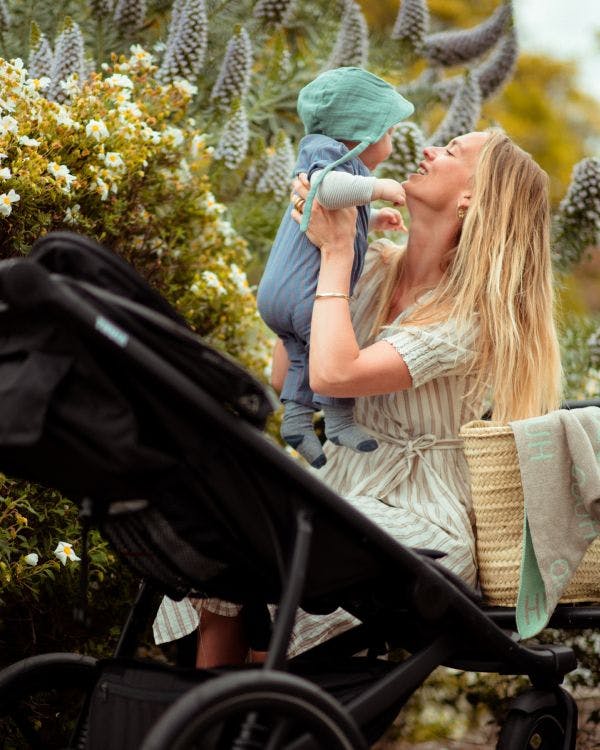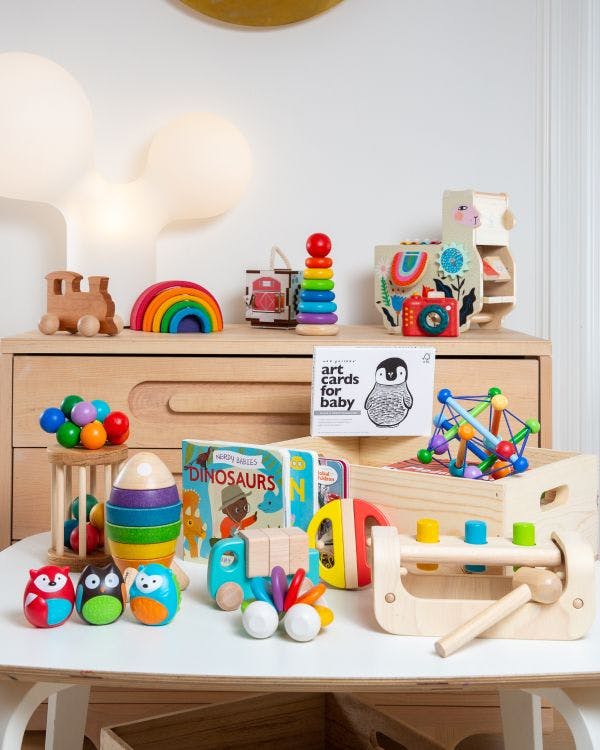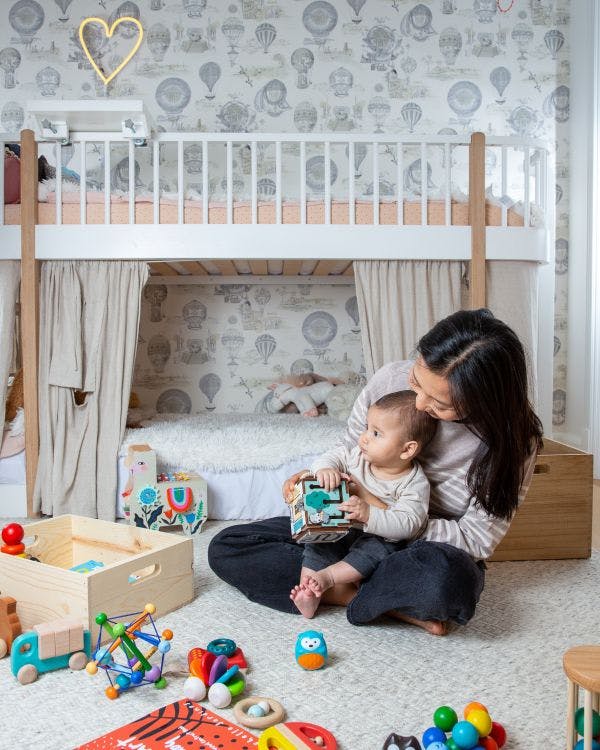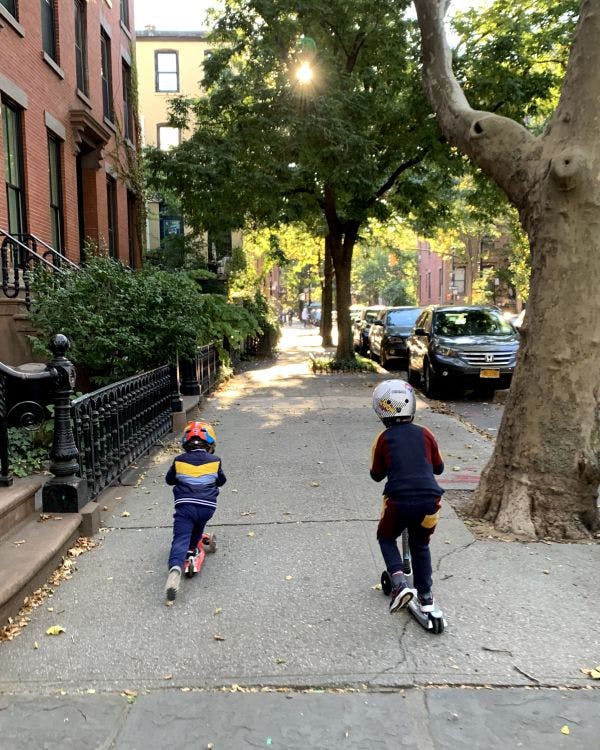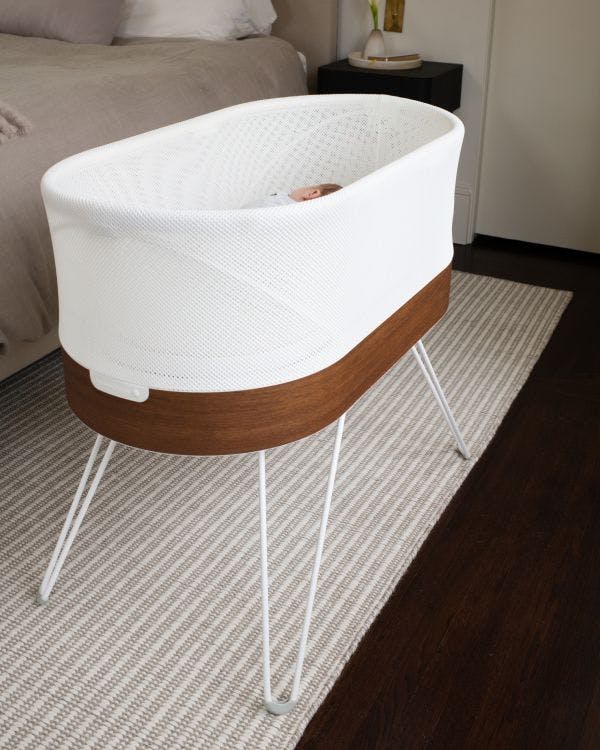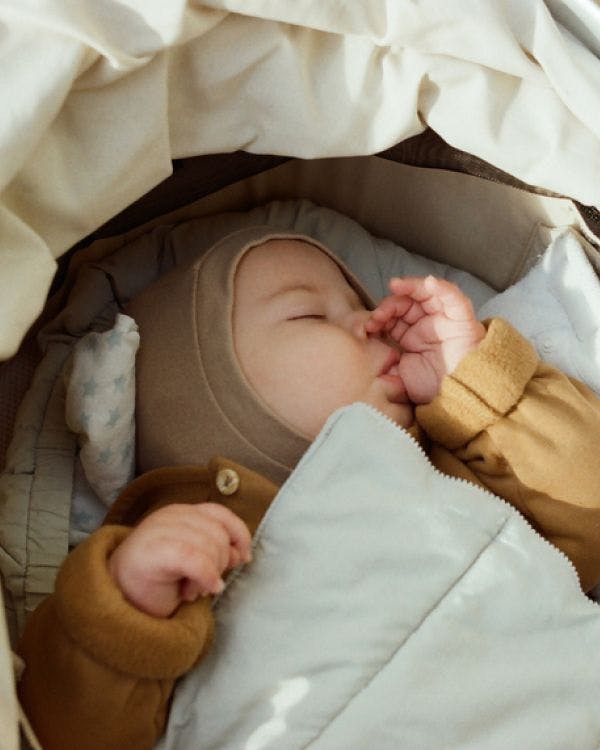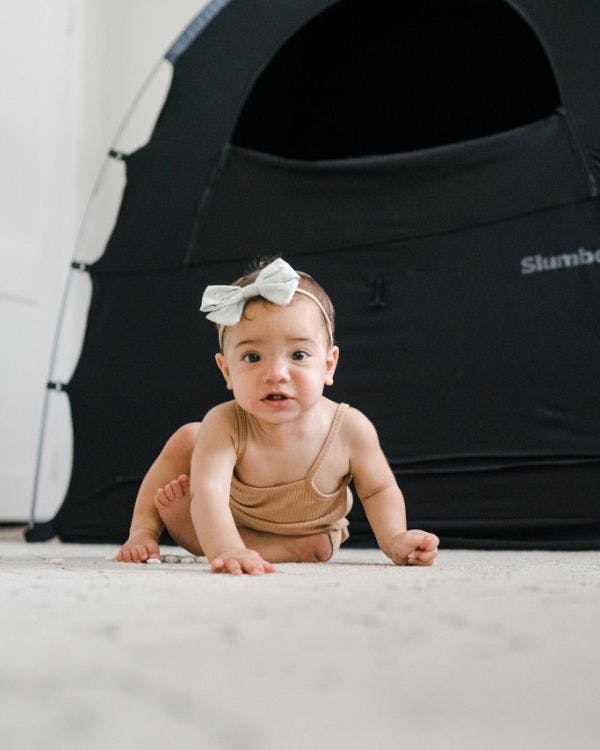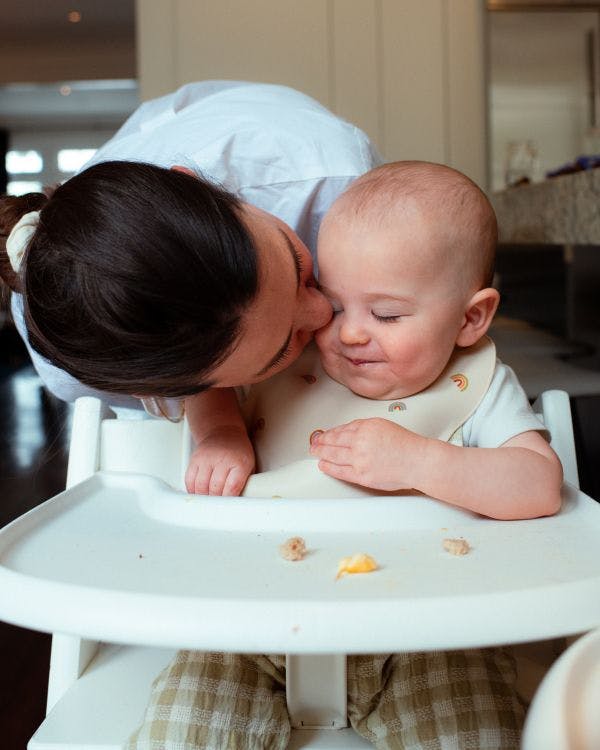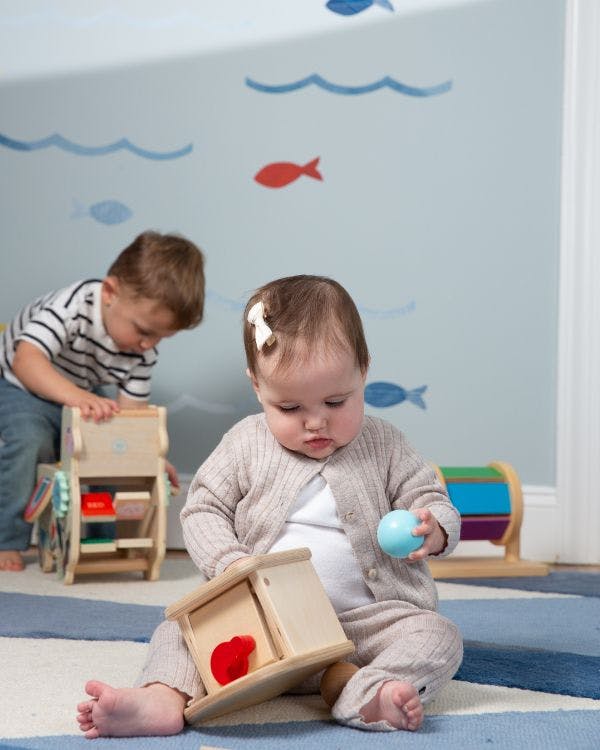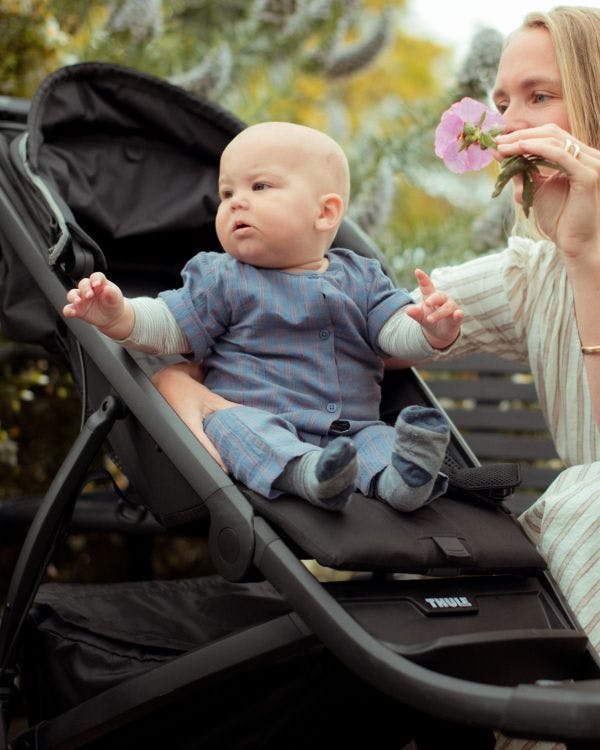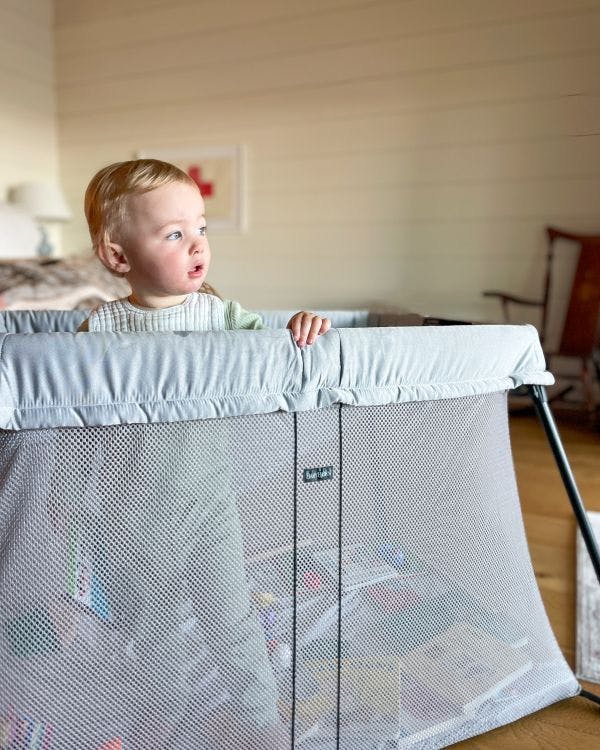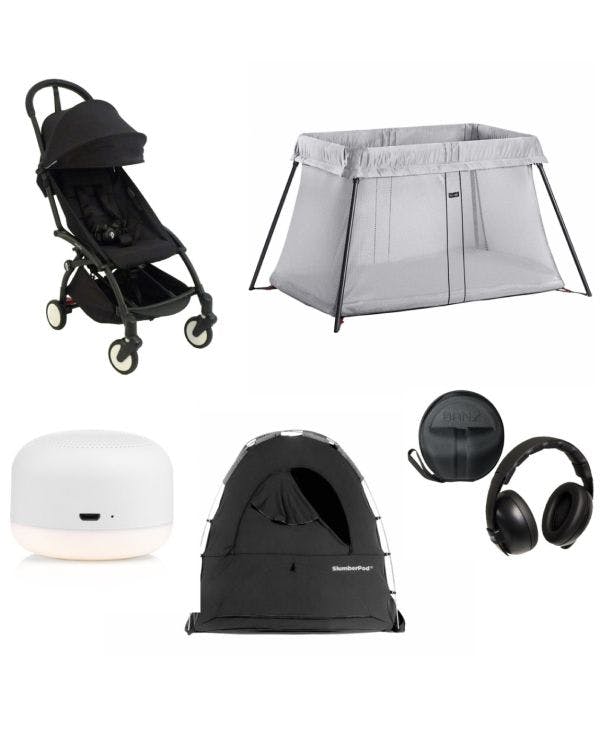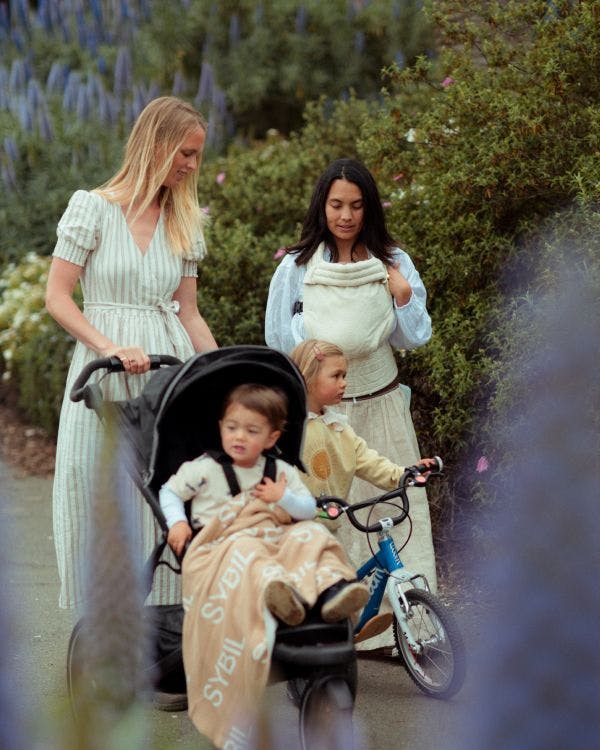LOOPLIFE
>
BABY SWIM LESSONS GUIDE: WHEN TO START & MORE
FROM LOOP HQ
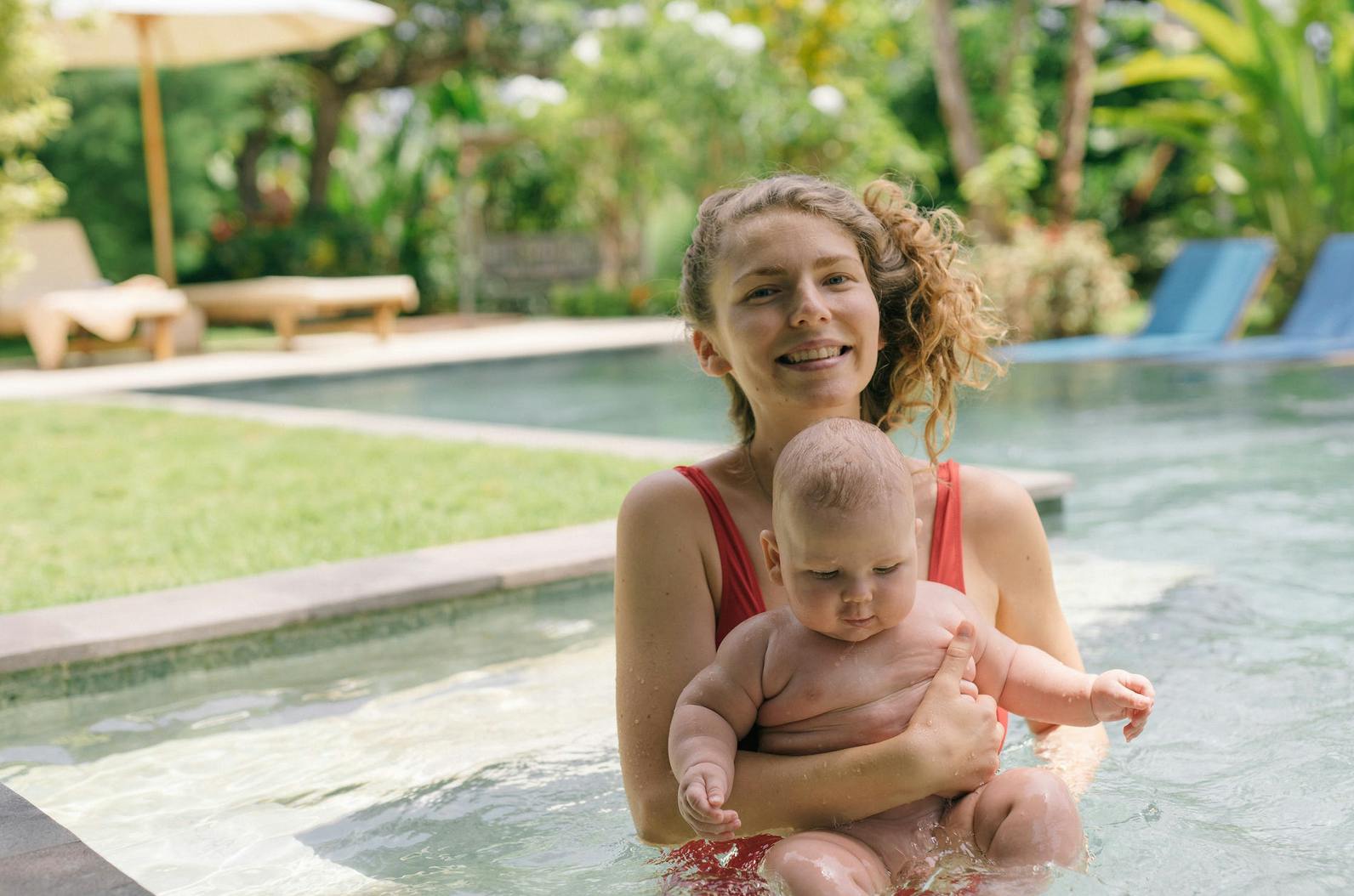
Baby swim lessons guide: When to start & more
Written by: Amy Roach
Published: December 16, 2022
Whether you have visions of your child becoming the next Michael Phelps or are just looking for a way to get your baby used to the water, infant swim classes are a great activity to consider. Baby swimming is also a fun way for parents and babies to bond and get in some social time with other families.
The idea of putting your infant in the water can be a scary one however, so if you’re wondering when to start infant swim classes and how you’ll know when baby can swim, you’re not alone. Before making the decision to sign up for baby swimming, it's important to get all the details and determine whether this activity is right for your family.
In this article:
- What are the benefits of baby swimming classes?
- When can my baby swim?
- How do I know if my baby is ready to start infant swim classes?
- What kinds of baby swimming classes are there?
- What should I look for in an infant swim class?
What are the benefits of baby swimming classes?
Babies take to water naturally (because, the womb!) and water play is a great early activity for infants. Baby swimming classes can help your child develop foundational water-safety skills, and some experts believe that baby swim classes can help to prevent drowning, which is a leading cause of accidental death for children under age four.
There are other benefits too, including:
- Infant swim lessons can help to build confidence
- Getting your child at ease in the water as a baby can make it easier to teach actual swimming skills later on
- It may make bath time easier if baby learns from infant swim classes that water can be fun
- It gets your baby used to movement and physical activity
- Baby swimming can help to build muscle and improve coordination and balance
When can baby swim?
Knowing when to start infant swim classes is key. Prevailing wisdom around when can baby swim has changed somewhat recently. The American Academy of Pediatrics updated its guidelines in 2019 to recommend swim classes starting at age one (previously, its recommendation was not to start until age 4) for kids who show signs of pool readiness and are frequently exposed to water.
However, many experts believe babies are ready for infant swim classes earlier, at the age of 4-6 months. Infant swim classes providing a specialized curriculum tailored to this age group are widely available and many parents have enjoyed safe and productive baby swimming for years. If you’re uncertain whether you want to start baby swimming before the AAP-advised age of one, consulting your pediatrician is a great place to start.
How do I know if my baby is ready to start infant swim lessons?
There are several things to take into account to determine whether or not your baby is ready to start baby swimming. Again, we recommend you check with your pediatrician, who can help you gauge your baby’s individual physical readiness, but these are some general signs of water-readiness:
- Baby can hold their head up on their own
- Baby does not exhibit fear of the water
- Baby seems emotionally ready to be in a swimming environment
What kinds of baby swimming classes are there?
Baby swimming classes are mostly designed for fun exposure to swimming, so your little one can learn to float, to feel comfortable in the water, and to experience being underwater—don’t expect baby to be doing the backstroke!
If you choose to do baby swimming classes, you will be in the pool with baby at all times, enjoying each other’s company and working on basic water skills. Classes are usually 30 minutes long, and small in size.
What should I look for in an infant swim class?
In order to choose a baby swimming program that provides the ideal environment, we recommend you look for the following:
- Warm water pools: It is recommended that water be heated to between 87 and 94 degrees Fahrenheit, as babies are at a higher risk of hypothermia.
- Ensure that the water is clean, disinfected, and chlorinated.
- Facilities should have qualified, certified swim instructors.
- Small class sizes: 10 or fewer babies per class is ideal
If you’re not sure of a local facility that offers baby swimming, check the
American Red Cross
for a list of swimming programs across the country.
Your local YMCA
is also a great place to start.
You might also like

Annual Warehouse Sale

Summer of Loop

Stroller Showcase
